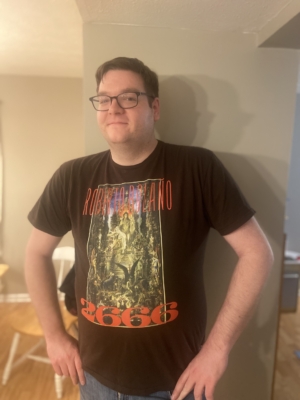Disappear Where? A Meditation on the Lost and Getting Lost
I once got lost on a school field trip. We were at a museum. Everyone had taken the elevator, but I had gone down the stairs. Terrified, I wandered around the first floor, dodging adults, until a teacher came down the elevator to rescue me.
For my morning commute, I like to take one of two routes.
My preferred route, the one I take most often, is considered the “back way,” avoiding the busier streets clogged by the construction of my city’s attempt at a working public transportation system. The other route is the busier one I try to avoid: quicker, yes, but with a high possibility of construction and traffic. I take this route on days when I stop by a nearby Target for a snack before work, or go to my local bookstore to get some reading done. If I didn’t take these trips, I fear I could simply vanish.
I wonder if my choices are innocuous, but I also wonder about the bigger implications of my small actions. I might miss a giant crash that kills me or leaves me crippled, or I might miss running into the love of my life, an old flame from high school whom I often think about even as I approach the age of 40.
If you are reading this, you have made decisions that you are either thankful for or have regretted and lived to talk about. I know I’ve made those decisions, like the time in high school, where I showed up to a friend’s house early in the morning for a ride to school only to find his dad naked in the kitchen drinking coffee. What if I had shown up late? Would I have missed my ride and been forced to walk to school? Would that have been a blessing if I had made it to school, only for there to be some mass tragedy like a school shooting? Is seeing my friend’s dad naked the cost of being alive today?
When I think about the bad things that can happen when we make certain choices, it connects to my fear of vanishing, and some names begin to float through my head, names of people who are no longer with us, people who are no longer anywhere: Laureen Rahn, Brandon Swanson, Michael Negrete, Tara Calico, just to name a few.
Laureen Rahn was having two friends over at her Manchester, New Hampshire apartment on the night of April 26th, 1980, while her mom was out of town. One of the friends, an unnamed male, heard voices in the apartment hallway and, assuming them to be Rahn’s mother, left through the sliding back door of their apartment. It was the last time anyone has seen Laureen Rahn.
Brandon Swanson drove his car into a ditch on the night of May 14th, 2008, after leaving a party. He called his parents for them to come to get him, but while on the phone, they heard him scream “oh shit,” before the line went dead. No one has heard from him since.
Michael Negrete was engaged in a late-night session of online gaming in his college dorm room on December 10th, 1999. At four a.m. he left to congratulate a fellow player before returning to his room. No trace of him has been found.
Tara Calico went for a bike ride along New Mexico State Road 47 on September 20th, 1988, at around 9:30 in the morning. It was a route she took almost every day, but she did not return at 12:30 like she promised her mother, and she has not been seen since.
The philosopher Nick Bostrom came up with the idea of simulation theory, where he hypothesizes that a civilization can create a simulation so advanced that it can create something that is identical to our own world, a kind of video game of real life. And like a video game, there can be Easter Eggs, certain movements that can take you to the end of the game, or parts of the game untouched by developers, non-spaces where the laws of the game, and real life, don’t apply.
I think about driving around town to familiar places, what it means to take a left rather than a right. If I am part of a simulation, are my movements simply code? What happens if I take a different route, writing a different kind of code? Do I blink out of existence, falling into those undeveloped parts of our reality? Or will I emerge, unbeknownst to me, into a different reality where I am not a missing person?
Is that what happened to Laureen, Brandon, Michael, and Tara?
Or
Did that happen to me on the school field trip?
Reid Delehanty lives and works in Indianapolis, Indiana. He is currently an MFA candidate at Antioch University in Los Angeles. He has stories published in the journals Sunflowers at Midnight Magazine, On the Run, and Half and One. For better or worse, he is not one for social media promotion, but if you want to contact him, his email is .





